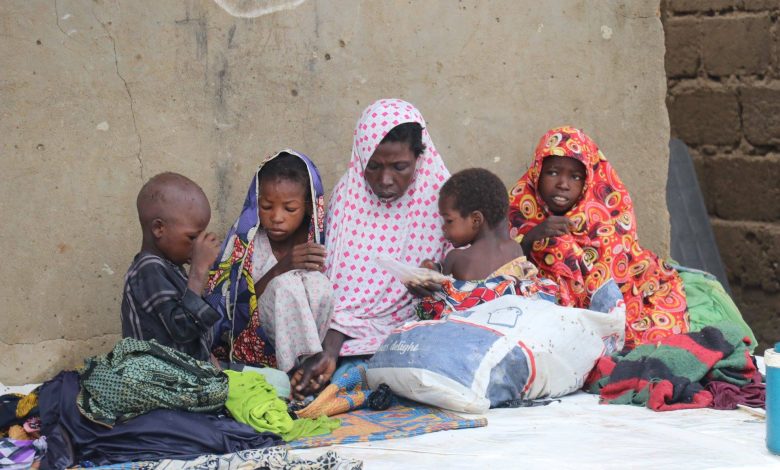
The latest report from the National Bureau of Statistics (NBS) has revealed a startling rise in Nigeria’s inflation rate, which has surged to a record high of 34.19% as of June 2024, with food inflation soaring to 44.6%.
The unprecedented spike has driven many Nigerians, particularly underprivileged families, to adopt food rationing as they grapple with the most severe cost-of-living crisis in decades.
The sharp increase in food prices is forcing families to cut back on meals, with many now eating only once or twice a day. The trend is leading to widespread malnutrition and could precipitate a significant public health crisis.
Experts warn that the inability to afford nutritious food will have dire consequences for national health, exacerbating issues such as vulnerability to diseases and other health-related problems.
Additionally, the economic strain is expected to increase poverty, insecurity, and social unrest. Some Nigerians spoke to New Telegraph on their plights.
Bolaji Amu, an automobile repairer from Isolo, shared his plight: “Before, I used to eat one meat for N700. Now, it is N1,500. If you want to eat with two meats, just keep about N2,000 and above.”
Emeka Ironsi, a PoS operator, commented on the escalating costs: “Before, one fufu with one meat was N700. But now, it’s about N1,200. So things are very expensive all over the place now.”
Mary Ugorji, a clothes seller in Ago-Palace Way, Okota, said: “We have food everywhere, but the problem is the purchasing power. What we used to buy for N1,000 before, N5,000 may not get it now.”
Abubakar Umaru, a Bureau de Change operator, said: “We all need to eat well so that we can be alive. There is a need for food security in our country at this critical moment as you can see in families.”
On his part, Segun Ajayi-Kadir, Director-General of the Manufacturers Association of Nigeria (MAN), stated that: “Nigeria had about 87.4 million people in extreme poverty already before the inflation surge. The issue of unemployment is still there, so many Nigerians are unemployed.”
Dr. Ololade Owolabi of Trinity Hospital in Ilasamaja, Lagos, expressed concerns about the health impacts of food rationing: “In a bid to trim our eating, we begin to eat unhealthy food. We may need to trim away good health and introduce things that bring about bad health to our bodies.”
Dr. Ayoola Idowu warned of the dangers of skipping meals: “Many people are doing dangerous things to their health by cutting down on the number of meals.
“Eating three square meals a day is no longer in vogue in many homes. But if you keep skipping meals regularly, you might be endangering your health.”
